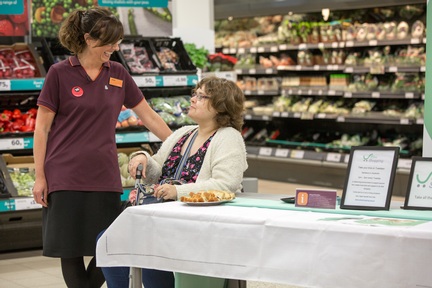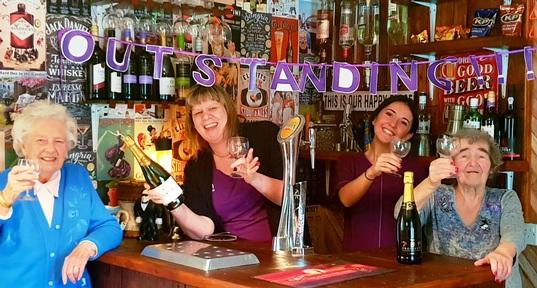Sainsbury's trials 'Slow Shopping' to help elderly and vulnerable customers
A Sainsbury’s store in Gosport has introduced a new experience to make food shopping less stressful for older people and those living with mental and physical disabilities.

‘Slow Shopping’ offers dedicated times within the week where customers are given extra time and space to shop and are helped by trained staff who are aware of their needs.
The concept was championed by Katherine Vero who found a weekly shop with her mother both difficult and stressful after she was diagnosed with dementia in 2005.
She said: “The experience of shopping changed as mum became increasingly separated from the ‘real’ world and I was left trying to mediate between my mother and the staff in the shop, who were not always understanding.
“After my mum passed away I felt inspired to come up with the idea of Slow Shopping, providing a welcoming and safe environment for anyone who needed to take more time to do their shopping.
“Slow Shopping is inclusive and advocates dedicated times within the week where staff are aware of the particular needs of their shoppers and allows them time and space. Customers are not identified as having additional needs and there are no specialist aisles or separation which can be the source of more stress.”
Slow Shopping is being trialled at the Newcastle- upon-Tyne store every Tuesday from 1-3pm. Those who want to use the service during this time are greeted at the entrance to the store, where trained Sainsbury's colleagues are on hand to assist customers with their shopping.
Chairs are situated at the end of aisles to enable customers to have a rest, while the store also provides two help desks, offers fruit and cake samples and packs any items of shopping.
Deputy manager of Sainsbury’s Gosforth store, Scott McMahon, is delighted to be trialling the new concept. He said: “When my father developed cancer I saw how hard he found shopping yet he still wanted to go to maintain his independence, so when Katherine approached me about trialling Slow Shopping I was keen to help.
“I knew Sainsbury’s would want to support it too. We invest a lot of time in training colleagues in how to help customers with disabilities so we were well placed to go the extra step of putting out chairs and manning help points.”
Research published by the Alzheimer’s Society recently found that although 80 per cent of the 850,000 people living with dementia in the UK list shopping as their favourite activity, one in four have ‘given up shopping’ since receiving their diagnosis.
Slow Shopping caters for older people and those living with anxiety, mental illness, communication or literacy difficulties, dementia and physical disabilities. The concept is fully-inclusive and presents a space in which it is safe for customers to take time to think and shop.
For more information, visit: www.slowshopping.org.uk
Latest Innovative Care News
 13-May-19
'Pink drink' brain cancer treatment rolled out across NHS in memory of Baroness Jowell
13-May-19
'Pink drink' brain cancer treatment rolled out across NHS in memory of Baroness Jowell
 25-Apr-19
Louis Tomlinson helps 83-year-old who lost wife to dementia complete bucket list
25-Apr-19
Louis Tomlinson helps 83-year-old who lost wife to dementia complete bucket list
 22-Mar-19
UK's top care home handyman takes residents to pub for pie and pint
22-Mar-19
UK's top care home handyman takes residents to pub for pie and pint
 12-Feb-19
Michael McIntyre's jokes tested to see if they stop elderly catching flu
12-Feb-19
Michael McIntyre's jokes tested to see if they stop elderly catching flu
 07-Jan-19
'We were lucky to find it': Family's delight as care home is rated Outstanding
07-Jan-19
'We were lucky to find it': Family's delight as care home is rated Outstanding